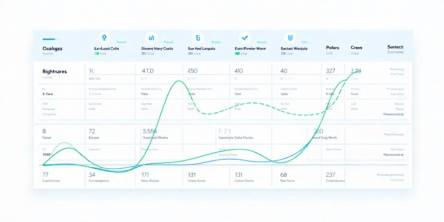Xamarin vs Native Mobile App Development: Which one Should You Choose?

Mobile app development has become an essential part of the digital ecosystem as mobile devices have become more prevalent than desktops or laptops. Regarding mobile app development, two popular approaches are Xamarin and native mobile app development. Xamarin is a cross-platform development tool allowing developers to write code once and deploy it on platforms like Android, iOS, and Windows. On the other hand, native mobile app development involves building mobile apps natively for a specific platform using programming languages like Java for Android and Swift for iOS.
With this blog, I aim to highlight the pros and cons of Xamarin and native mobile app development. By exploring the strengths and weaknesses of each approach, I believe businesses like yours can better understand which option aligns best with their project requirements, development resources, and long-term goals. So, whether it's the efficiency and code reusability of Xamarin or the performance and platform-specific capabilities of native development, this blog would provide valuable insights to enable informed decision-making and embark on a successful mobile app development journey.
Now, allow me to walk you through each of their pros and cons:
Xamarin: It is a cross-platform development tool that allows developers to create mobile apps for multiple platforms, including Android, iOS, and Windows. It uses C# programming language and provides access to native APIs, making it easier for developers to create apps that work seamlessly with the device's features. However, like any other tool, Xamarin has its own set of pros and cons:
Pros:
- Code sharing: Xamarin allows developers to share code across multiple platforms, reducing development time and cost
- Native access: Xamarin provides access to native APIs, making it easier to create apps that work seamlessly with the device's features
- Performance: Xamarin allows developers to write high-performance apps as it compiles the code into native code
Cons:
- Cost: Xamarin requires a license to use, which can be expensive for small businesses or individual developers
- Learning curve: Developers need to have a good understanding of C# and .NET framework to use Xamarin effectively
- Size of the app: Xamarin apps tend to be larger in size compared to native apps as they include the Xamarin runtime
Native mobile app development involves building mobile apps for a specific platform using programming languages like Java for Android and Swift for iOS. This form of mobile app development to offers its own sets of advantages and disadvantages:
Pros:
- Native performance: Native apps offer high performance as they are specifically designed for a particular platform.
- Better user experience: Native apps provide a better user experience as they are optimized for the platform and its features.
- Access to native features: Native apps have access to all the platform's features, allowing developers to create rich, engaging apps.
- Strong community support: There is a strong community of developers who contribute to the development of platform-specific tools, libraries, and frameworks
Cons:
- Higher development cost: Native app development requires specialized skills and knowledge of platform-specific programming languages, which can be expensive
- Longer development time: Developing native apps for multiple platforms can take longer than developing cross-platform apps
- Maintenance cost: Updating and maintaining multiple versions of the same app can be costly and time-consuming
- Limited code sharing: Native apps cannot share code across platforms, which can increase development time and cost
When it comes to choosing between Xamarin and native app development, it's essential to consider the specific needs of the project. Xamarin development services provide a cost-effective solution for businesses that want to build apps for multiple platforms, while native app development is preferred for high-performance and gaming apps. Both approaches have pros and cons, and the final decision should be based on budget, timeline, and the app's intended audience. Choosing the right development approach can help organizations create robust, high-quality mobile apps that meet their business objectives and enhance the user experience.
Similar Articles
Modern businesses are drowning in communication overload, and much of that burden stems from outdated tools that simply can’t keep up
Building lending software isn’t just a technical project—it’s a business decision. Whether you're a fintech founder or part of a traditional lending institution trying to go digital, three questions will shape everything that follows
Learn why robust security is crucial for super app development. Explore key strategies and best practices for mobile app development security.
Walkie-talkies with an extensive reception capacity have changed significantly when it comes to portable communication by displaying cutting-edge features with seamless connectivity that covers more than just the state
USB-C technology has revolutionized the way we charge our devices, offering faster charging speeds, higher power delivery, and universal compatibility across multiple devices
Discover expert mobile app development strategies to create a viral app that attracts users and boosts engagement
Optimize app localization for iOS users across the EU with language, cultural, and regulatory adaptations. Engage users and boost retention with these tips!
Discover the top 10 mobile app development trends of 2024! Explore 5G, AI, AR/VR, blockchain, and more to stay ahead in the ever-evolving app development landscape.
With its triple-lens design and fantastic photo and video quality, the iPhone 11 Pro Max is extensively acknowledged for its superior camera system. But problems can occur with also one of the most advanced technologies. If you're having issues with the iPhone 11 pro max camera lens, knowing the typical problems and how to repair them









